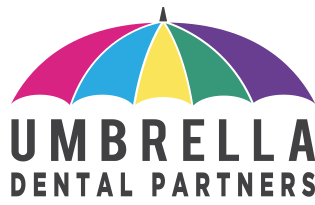You have vetted many buyers that have expressed interest in buying your practice,
have had many discussions and rounds of due diligence, you not only looked at the $ amount being paid but also thought about whether the buyer is the right fit for your practice and finally choose your partner who you want to carry your legacy forward. Usually once this decision is made, it takes couple months to close and in most cases, there is a period of 3–6-month transition post close. But there are many practice owners who have not gone through this experience. So, what can you expect leading up to the closing day and post close? We frequently get asked this question so below are a few things that often get missed and could be painful for a smooth transition.
Insurance & Vendor credentials:
Similar to insurance credentials, you as a business owner work with various vendors and most of the time each have their own portals and associated userId and passwords. Few such examples are your website hosting provider, dental supplier, scheduling software provider to name a few. Preparing a list of all the vendors and the credentials that you can hand over to the buyer not only will make the transition process seamless but also avoid the back and forth between the buyer and you after the transition is done.
Accounts Receivable:
Often times there is a set period (60-90 days) where the AR is owed by the buyer to you post close. It is a very typical process for the buyer to charge a 5% fee as they are spending the time and money to collect the receivables. Knowing the $ amount of AR on the day of the closing and knowing the general trends on how fast you used to collect you should have an idea of when the entire AR will be collected. Understanding this often becomes important as the buyer now has complete control of your systems and financials you often have to depend on the buyer to provide you with this info.
Utilities:
Most utility transfer process are easy. They even back date the invoices to the day of the sale, so the buyer is responsible for paying from the day of the close. But one utility you should be careful is with Comcast. Comcast is a behemoth when it comes to commercial internet and given the size of the company you will be dealing with various teams, departments, tickets, escalations, etc. You probably have a contract with them which typically runs 1 to 2 years. You may also have your phone system from them. You would think the buyer would assume your contract and you can walk away. But that is not that easy. Buyer may need a different internet package or may not need phone, which makes the transfer process almost not possible. Buyer can and almost always will start a new account with Comcast and then you are left with your contract which may run you into thousands of dollars. There is no easy solution here, but if you are preparing yourself to sell your practice avoid signing a long-term contract. If you think the Comcast rep is not helping you, call back again. There are a few good ones that will work with you to figure out a solution. Our point is to be aware and be prepared when it comes to Comcast.
IT services & subscriptions:
Scheduling software, Microsoft office, your antivirus software, your automated texting to patient’s software and the list goes on and on. Over the years you subscribed to services to maintain your technology infrastructure and most of these are on auto pay and you don’t even realize how many of these you pay for. Best way to keep track is to take a look at your credit card and your bank accounts for a 3-month period and make a list of all the services you have paid for. Store all the names and the credentials in one safe place that you can hand over to the buyer. And most importantly if you are preparing to sell your practice do not, sign a long-term contract.
HR & Benefits:
Health and vacation benefits are the two most common ones that private practice owners offer their employees. You set these rules and most of the time you made exceptions for your staff. But once the sale happens the new owners may or may not honor the benefits especially the left-over vacation days. While majority of the sellers do not mention that they are listing their practice for sale, you could nudge your employees to use their vacation time before the sales happens. You know each and every employee that has been working with you and you want the best for them. The buyer will take time to get to know them and all of your employees may not like the transition and/or the new owners and it is ok. You have done what you can and acted in their best interest.
While this is not an exhaustive list, our intention was to give you 5 categories of items that you can be well prepared for. We also understand that this could be an overwhelming process and that is why we introduced our managed services offerings where we work with you to best prepare you and the practice before you even list the practice for sale. To learn more about our managed services, please get in touch with us.





